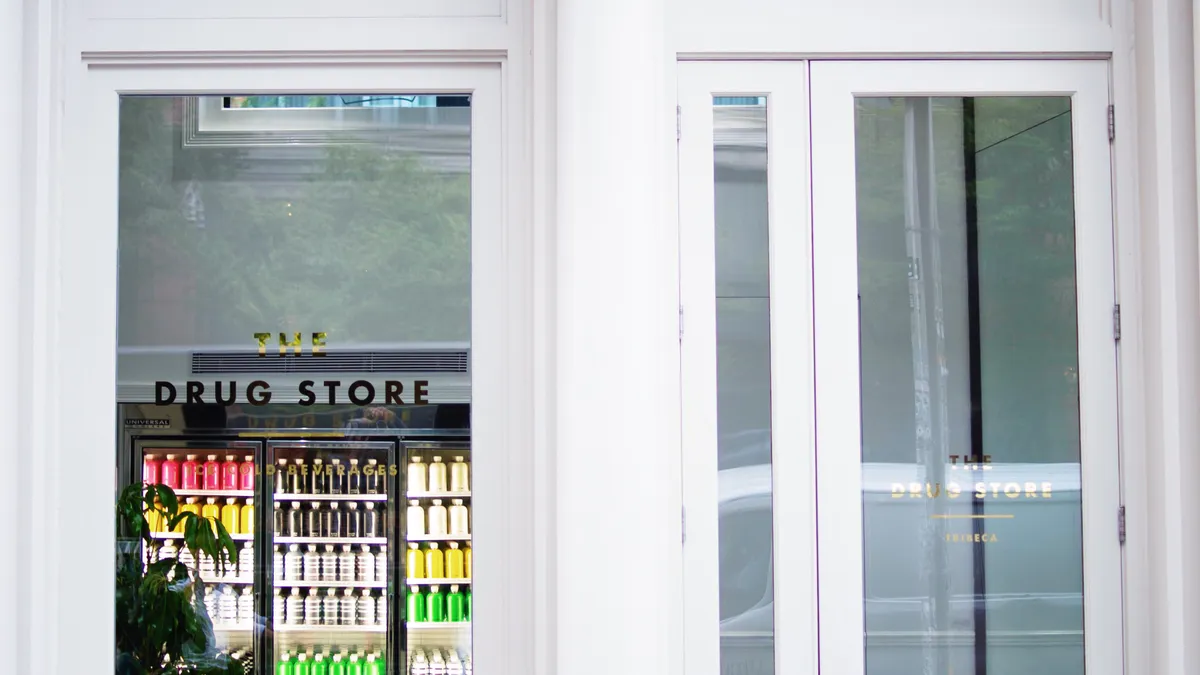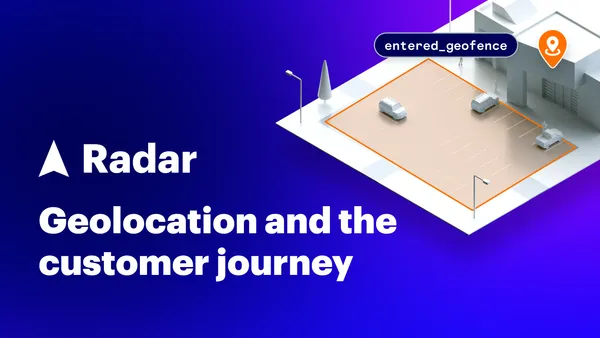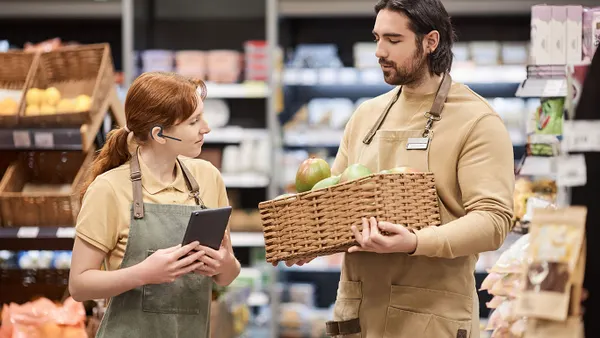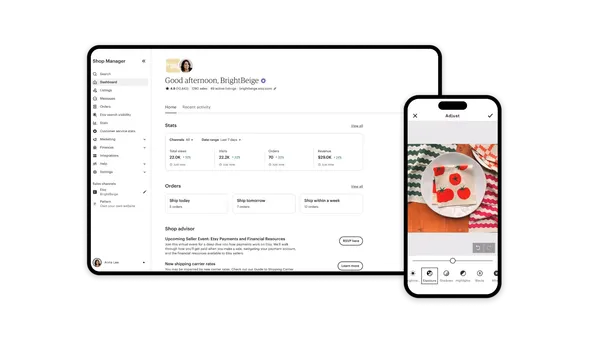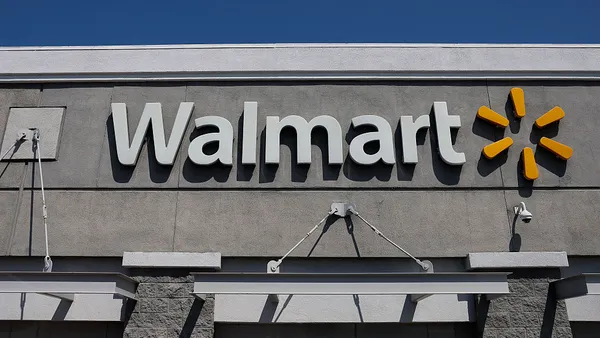As CPG brands and retailers race to enter the e-commerce space, Dirty Lemon — a brand that was born online and has thrived in the digital market — believes brick-and-mortar retail holds the key to its future.
Last week, the premium beverage maker opened a permanent, cashierless format called Drug Store in New York City. Zak Normandin, Dirty Lemon's CEO, described the concept as a “walk-in vending machine” where shoppers enter the store, pick up six-packs of the brand’s trendy $10 lemonades or tonics, and pay by sending a text to Dirty Lemon. Within five minutes, a brand representative will respond and charge the credit card linked to the customer’s phone number. The store also uses RFID technology to track products being sold, and a heat map monitors shoppers as they enter and leave.
Normandin told Food Dive this model gives the company access to shopper insights and behaviors that its direct-to-consumer channel, which Dirty Lemon has used since its launch in 2015, couldn't provide.
“Over 80% of our customers are purchasing with their mobile devices,” he said. “We think SMS and mobile payments — which is something that we call c-commerce or conversational commerce, which is transacting through conversation and having that [purchase] start through a dialogue with the company — is the future.”
Ninety-five percent of Dirty Lemon’s total sales are already processed by text message. Normandin said the combination of this checkout process and its new Amazon Go-like store will help the company bolster its branding and hone better consumer data.
“Over 80% of our customers are purchasing with their mobile devices. We think SMS and mobile payments — which is something that we call c-commerce or conversational commerce ... is the future.”

Zak Normandin
CEO, Dirty Lemon
“We can start to track trends and behavior within the space that we normally wouldn’t be able to if there was a different system being utilized,” he said. “These retail activations utilize the technology that we developed for direct-to-consumer, and we’re incorporating it into a controlled retail setting to allow us to continue to build a data set around consumption behavior and provide a more optimal experience to our customers.”
As part of this Drug Store push, Dirty Lemon will invest its entire marketing budget in physical retail in 2019. Historically, the company has relied on Facebook and Instagram for digital customer acquisitions, but Normandin believes this change will have a bigger impact as new e-commerce entrants drive up online ad prices.
“We think this is a much better [use] of our resources,” he said. “Just to put things in perspective, what it would cost us in a month for [marketing in] retail spaces is what we would spend in a day on Facebook. And I think the impact is potentially just as significant. We’re obviously not marketing the product to millions and millions of consumers [at retail], but the consumers that we are marketing to are highly engaged.”
Dirty Lemon plans to open three additional Drug Stores — another in New York City, one in Chicago and one in Miami — in the coming year. Normandin said these cities are hot spots for its millennial consumers. He hopes to expand to Los Angeles as well.
“Just to put things in perspective, what it would cost us in a month for [marketing in] retail spaces is what we would spend in a day on Facebook. And I think the impact is potentially just as significant."
Zak Normandin
CEO, Dirty Lemon
“We are looking to connect with our customers in the places where they live, work and play,” Normandin said. “Developing more channels … in these areas is where we’re focusing our efforts for the next couple of years.”
The company also plans to open a 1,000-plus square-foot cocktail bar behind its New York City Drug Store where VIP customers can sample new Dirty Lemon beverage concepts that aren’t on the market yet and mixed alcoholic drinks made with their favorite products.
Normandin said the bar will allow the brand to host special events and build community with customers, as well as gather information on restaurant consumption behavior. The company is excited for the new opportunities brick-and-mortar experimentation could bring, but don’t expect to find the beverage in the local supermarket.
“We will never sell our products in grocery stores. It's just not part of our strategy. It's a very inefficient system," Normandin said. “You don't have control even though you pay brokers and distributors … the people that are talking about the product may not be knowledgeable. There's a lot of different factors that actually detract from the customer experience that you would ideally want to have for your brand, which is the reason why we're doing all of this ourselves.”



